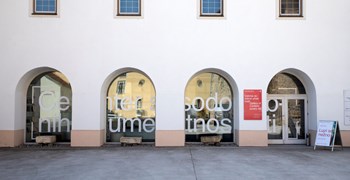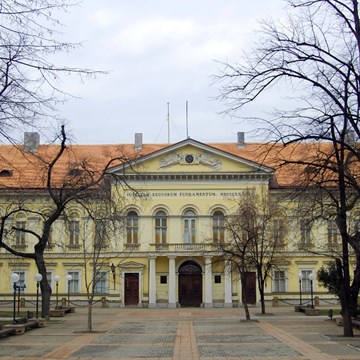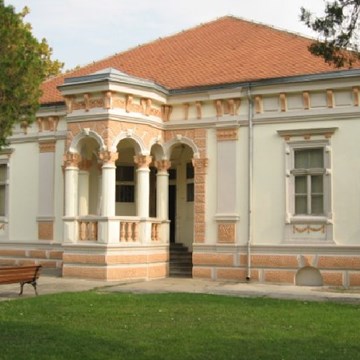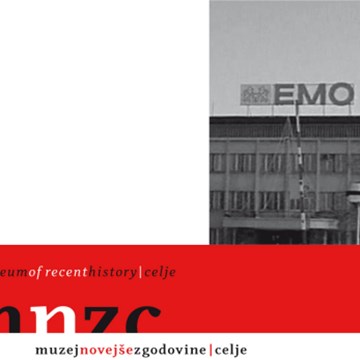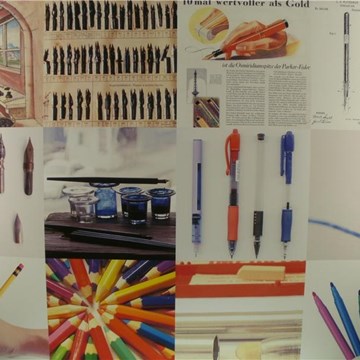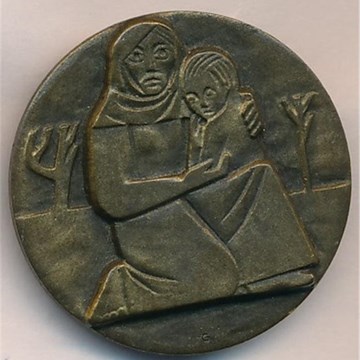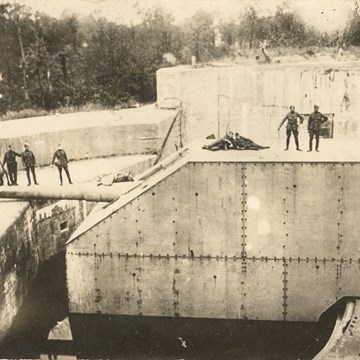Karin Vrbek: People Are Like Houses
The artist Karin Vrbek does not limit her artistic practice to a specific medium, but combines the use of video, sound, installation, writing and the creation of visual messages into holistic sensory landscapes situated in the gallery space.
Through thoughtful installations, she explores the possible deconstruction of the concept of the ”white cube”, which defines the exhibition space, while introducing the aesthetics of the everyday into it. By interweaving different materials and media, she significantly intervenes in the interior of the gallery and transforms it. Her works address existential questions, the position of man in the contemporary age of fragmentation, alienation in interpersonal relationships, as well as man’s relationship to nature and technology. She focuses on peripheral places such as remote industrial spaces where there is no perceptible human presence and translates them into poetic soundscapes through insightful camera observation (Sleeping Giants, 2020). She is particularly interested in sound and the presence of noise in everyday life, and in raising awareness of the difference between listening and hearing (Symphony of the Environment, 2020), as well as emphasizing man’s dependence on nature and its significant impact on the psyche (Safe Space, 2019). In her recent work, she uses an installation composed of surveillance camera footage to question the subjectivity of perspective, the act of viewing itself, and how personal life is transformed into functionality and productivity, constrained within a social role and confined by the expectations of the system (Life as a Function; If You Saw the Things I see, 2022).
She is presenting her work for the first time at the Likovni salon Gallery with the exhibition People Are Like Houses, which deepens the reflection on human position in contemporary times, marked also by the rise of loneliness and the disintegration of communal bonds. The exhibition is conceived as an intervention in the public space and as a gallery installation, comprising a textual component, a series of posters and reworked clothing, where the artist uses the metaphor of the house as a symbol of home and intimacy to discuss the alienation of the individual from the environment as well as from oneself. The texts stress the importance of interdependence, that an individual can never be isolated from the environment but is dependent on it and influenced by it and, conversely, influences the environment with their presence. As the artist writes in the Fragments Series (2024), the chill of the cold ground seeps through the reclining body; it is a matter of their interaction. Starting from a reflection on the interconnectedness of phenomena, through a series of painted garments that suggest both the presence and absence of the body, the artist asks what the possibilities of delineation within interdependence are, how the individual is defined as a subject and, as such, enters into a relationship with others and the environment. She is particularly interested in how we connect and communicate with each other within the system of language, as addressed in her work Have You Seen Her (2024). It is a series of posters conceived as a missing person notice, placed in the public space of the city centre, through which she highlights the loss of the self in the contemporary. Throughout the installation, the artist expressively addresses the viewer in order to establish proximity and dialogue based on a sensibility beyond words, creating new meanings through the unspoken.
Karin Vrbek (1998) graduated from the Academy of Fine Arts and Design at the University of Ljubljana. She has presented her work in joint exhibitions such as: A Letter Forever Unwritten (Gallery of Contemporary Art Celje, 2023); The Premiere 2022 – The 5th Triennale of Young Artists; Performativity, Interaction, Process (Gallery of Contemporary Art Celje, 2022); and I Dreamed I Was Human (Gustart, Maribor, 2021). Together with the artist Daša Vinšek, she presented the project Transient, Chronicles of the Mirror of the Soul and the Collector of the Void, Part 1 (Ravne Gallery, 2022). In 2017, she received the Little Veronika Award for the best poem.
Zavod Celeia – Center for Contemporary Arts
Supported by: Municipality of Celje and Ministry of Culture RS
Curator: Maja Hodošček
Text: Maja Hodošček
Exhibitions and events

JUDIT FLÓRA SCHULLER: Mame na Himalaji
Temporary exhibition at Center for Contemporary Arts Celje until 31.08.2025Lepo vabljeni na odprtje razstave v petek, 6. junija, ob 19. uri v Likovni salon. Umetniška praksa Judit Schuller je prepletena z njenim življenjem. Obravnava osebne, izrazito intimne, teme in se še...

6. Triennial of Young Artists - PREMIERE 2025
Temporary exhibition at Center for Contemporary Arts Celje until 28.09.2025Fields of intimacy, transitions and potentials of the medium Tinkara Babić, Bad Artist & Iva Suhadolnik Gregorin, Lučka Centa, Jurij Hartman, Ana Janež, Žoel Kastelic, Rene Ketiš, Anja Kočar,...
Activities from this museum
We don't have anything to show you here.
